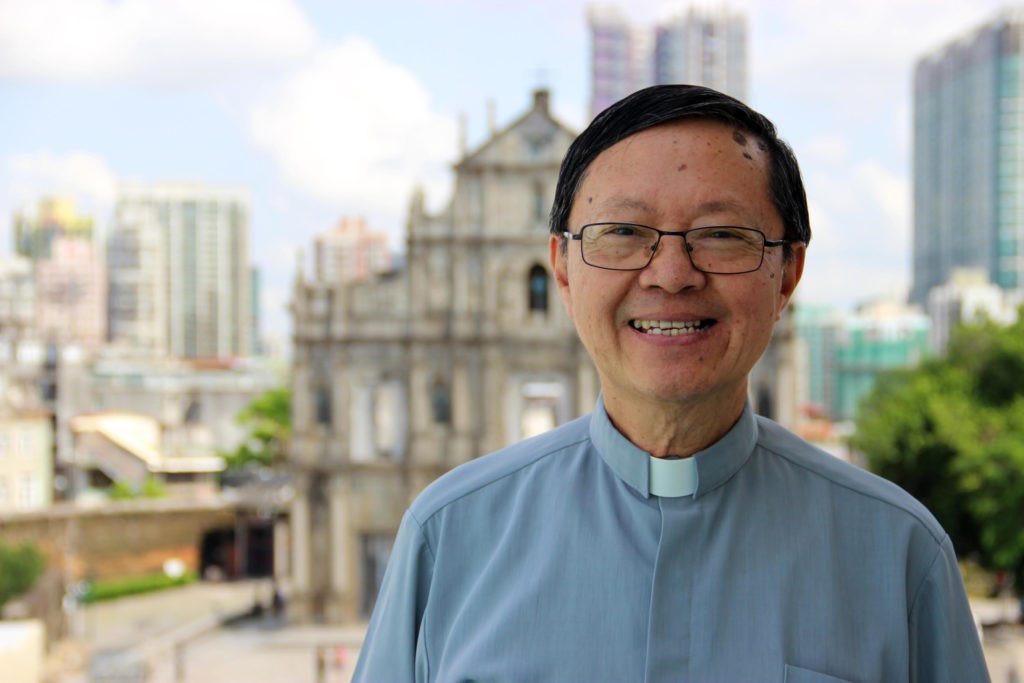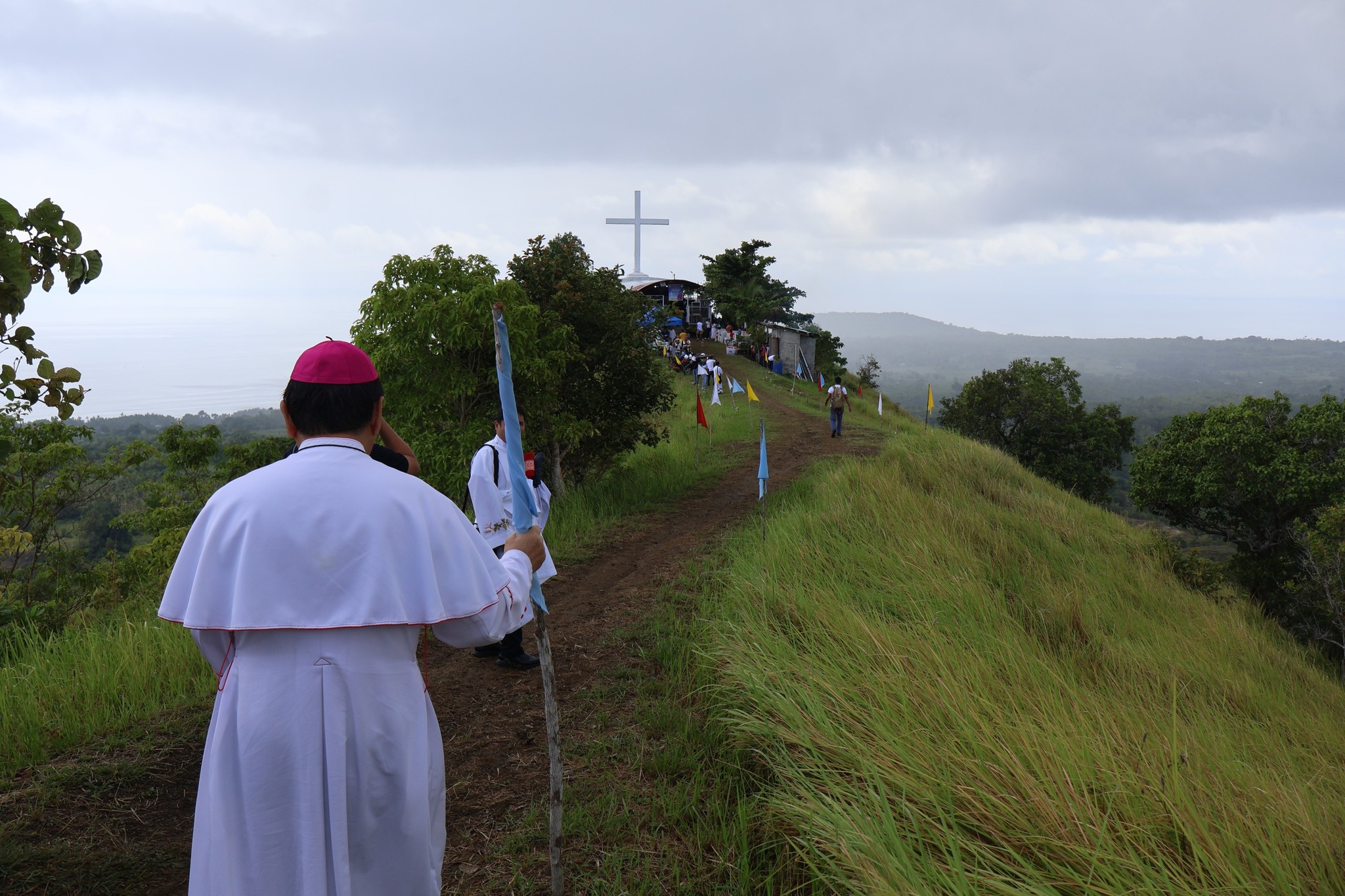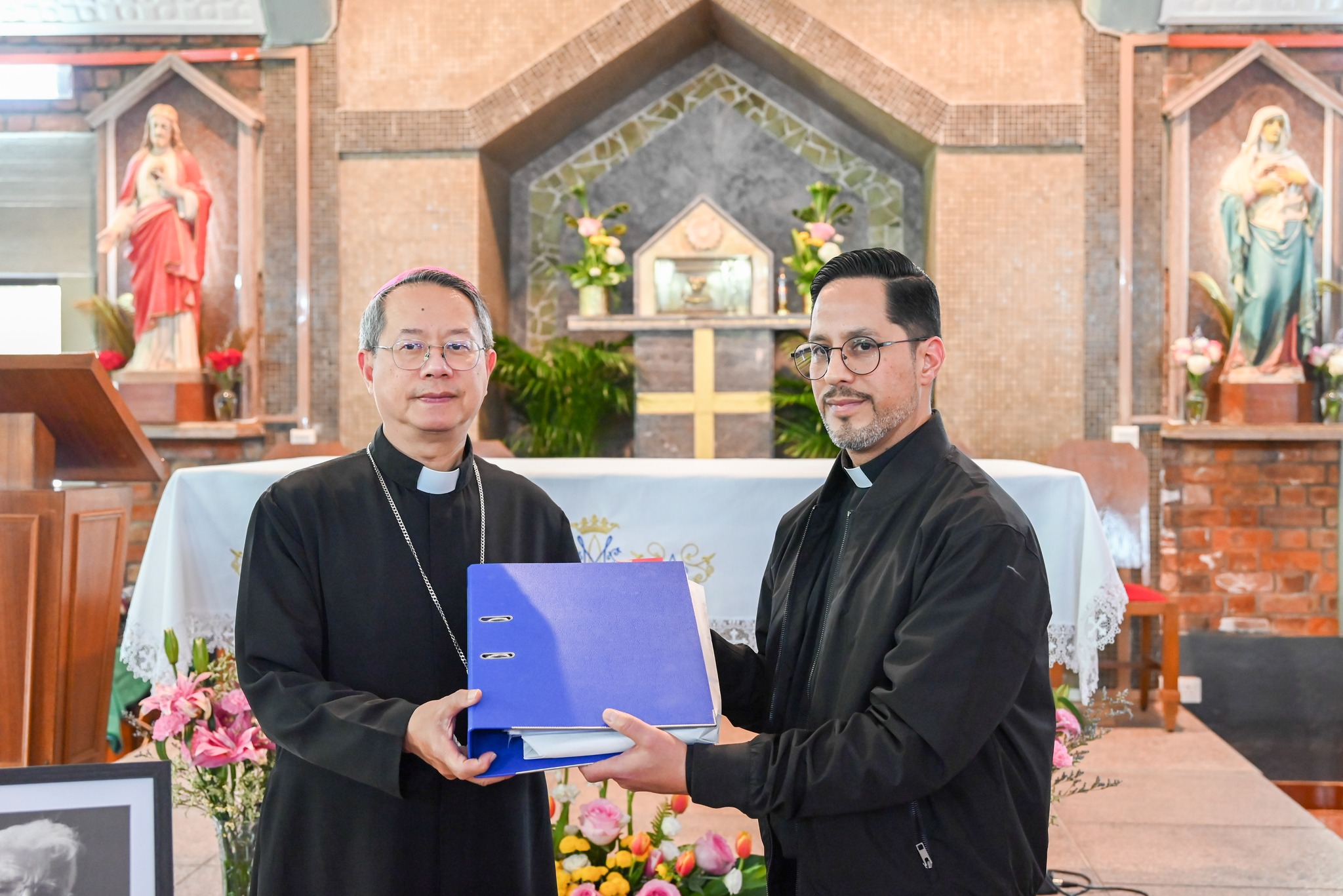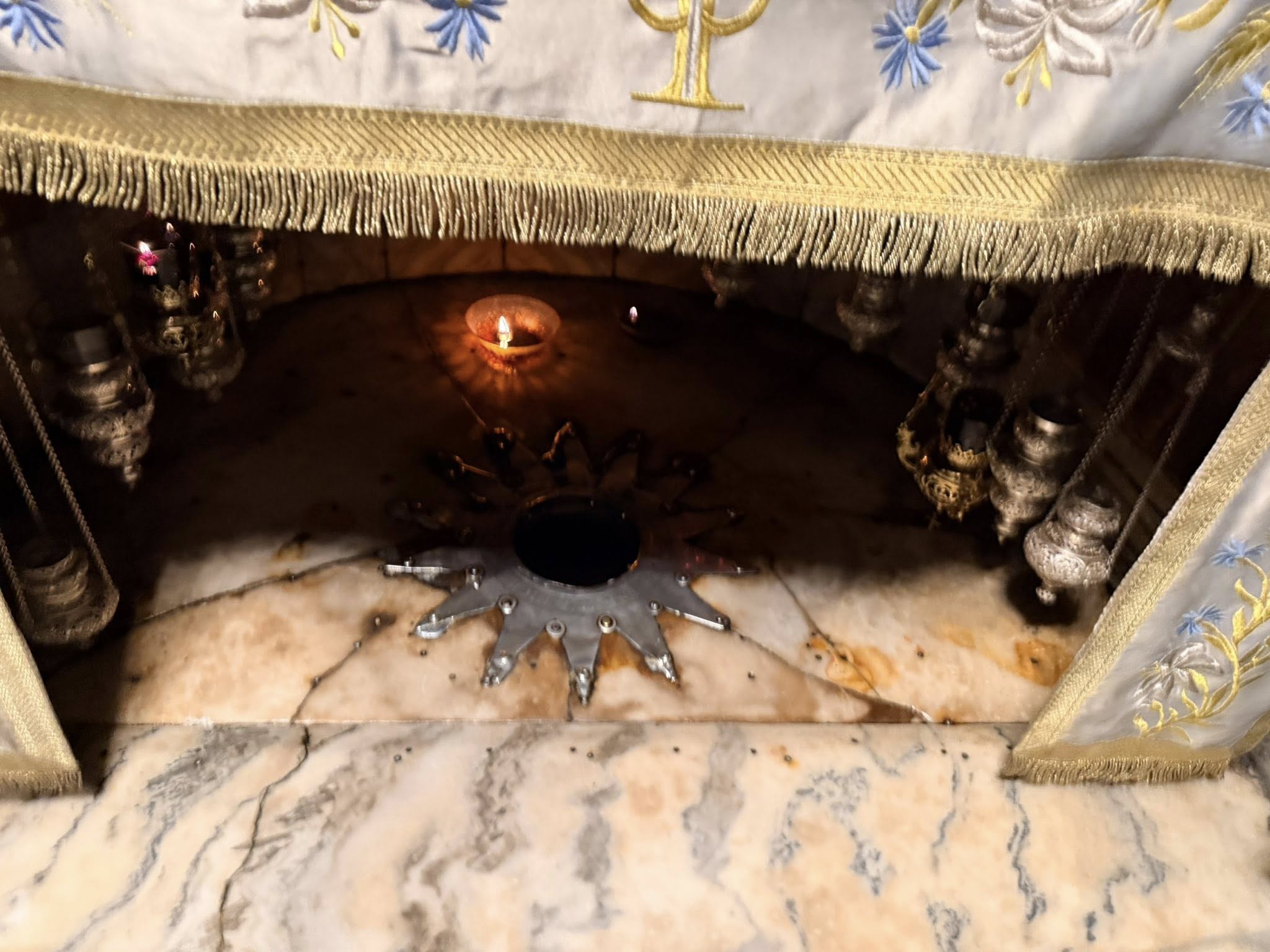– Marco Carvalho
The Society of Jesus has been present in Macau from the very beginning of its history and education has always been a concern and a venture for the Jesuits. They were once responsible for the first western university in East Asia – Saint Paul’s College – and they still manage two local educational institutions, Ricci College and Hoi Sing School. But what sets Jesuit education apart? Father Paul Chan, chaplain of the Ricci College, explains.
What makes a Jesuit-led school different from the other schools and from the other Catholic schools? Since its inception, the Society of Jesus has always valued knowledge and the use, not only of the heart, but also of the mind to reach God and to reach to the others. What are we talking about when we talk about a Jesuit education?
In my opinion, a Jesuit school is different from other Catholic schools. We try to go back, to return to the experience of Saint Ignatius of Loyola, to his conversion. When he was wounded, after the war, his sister-in-law brought him two books: the life of Jesus and the life of the saints. Now, his conversion was facilitated by God himself. Ignatius experienced two inner processes: he was lead to consolation by a good spirit and to desolation by an evil spirit. So, in his convalescence, his castle was, in fact, transformed into a school of God. I think that in every Jesuit school there’s also a school of God. We do not provide only books. We provide an environment, so that the students might experience God through the teachers and through the staff and they can apply that experience of God in their daily moments. This is why we, Jesuits, try to promote integration: they have a holistic will and we try to help them to integrate. This is our primary goal, rather than catechism or indoctrination. Ignatius encountered a personal God through his bad past experiences. Fragile as he was after he was wounded, he realized that he could not be a knight anymore. He couldn’t spend his time fighting and chasing women, so he allowed God to direct his own life. He convinced himself that he belonged to God.
Is the example of Ignatius of Loyola a good example to Macau? As you were saying, he redeemed himself. He could barely read before he received the two books his sister in law gave him. He was a person of the world and not a person for the world. Can this spectacular turnaround in Saint Ignatius life be seen as an example for all of those growing up in a place like Macau?
Yes. Ignatius is a very human person and through mindfulness and self-awareness, twenty years after his conversion, he translated his experience in a book that he called Spiritual Exercises. Through this process, he wanted to help people to find the principal foundation of life. He developed a sense of belonging to God, but also a sense of belonging to himself. He found a place in God’s plan not only for himself, but also for the others. But the Spiritual Exercises are also about choice. Those that can help us to achieve our goals, we choose them. Those that cannot, we let them go. One important message of the Exercises is the idea of “magis,” the return to the reasons why we were created: to love and to serve God. Ignatius invites us to go back to the roots of our own existence. The conversion of Saint Ignatius was a very long process. He argues that the way we see the world should not to depend exclusively on our own subjective discernment, but also on the objective discernment that comes to us through the others, through the society and through people. Always a balance. Our education helps to form people and helps them to change their minds, their attitudes and their hearts. The spiritual conversations we try to promote among our teachers or with our students are heart-to-heart conversations. We try to explain to our teachers – whether they are Muslim, atheist, Buddhist, Catholic or Protestant – the importance of speaking intentionally and to listen attentively. Since we are talking about persons, about our students, we try to speak intentionally and the others will listen attentively. In the first round of our spiritual conversations, we try to speak from the heart and usually, the second round, we share our thoughts and what usually happens is that we usually touch each other hearts. After we listen to each other in the second round, there is a third round where we try to answer one single question: “Do we have any consensus?” If not, what action can we take? Slowly, slowly, step by step, this method helps us to grow as a team, so we can live as men of God and as servants to the others. This is not mandatory, this is not a binding procedure and it is not, at all, a form of brainwashing. It is the experience of being human, put to use on a daily basis. Ignatian education is more about human integration than about anything else. It’s about a day-to-day encounter with each other, with oneself and, ultimately, with God.
What would you say are the core values that you would like each and every one of these students to take with them when they leave the Ricci College or any other Jesuit school? What will set them apart from the others as citizens?
Basically, they will know who they are. They will know where they come from and how to answer the most difficult questions: who is God, who am I, where am I and where do I go from here. After they graduate, I hope they will be able to have solid answers to all those questions. Once they know who they are, our students will be able to act and talk accordingly. We expect them to follow a path of kindness and righteousness.
When Father Arturo Sosa, the Jesuit Father General, came to Macau in July, he met the teachers and the students of both the Ricci College and Hoi Sing School. How important is education for the Society of Jesus? How important is such a venture?
I think that education is an important asset ever since the conversion of Saint Ignatius of Loyola. Before he went to Paris, when he was in Spain, he tried to gather a few companions with which he could share his conversion experience. This experience was rooted in God, rooted in himself and rooted into the world. When he was in Paris, where he shared a room with Francis Xavier and Peter Faber, he finally realized the comprehensiveness of his mission and of God’s experience. Jesus had said: “Where two or three gather in my name, I will be in their midst.” From that time onwards, companionship, relationship and love are the best education. It was because of this epiphany that Ignatius founded the Society of Jesus. He founded the Society with other nine early companions and it didn’t take long for kings, nobles and bishops to invite them to open colleges and, at a later stage, secondary schools. There are now 844 Catholic education institutions affiliated with the Jesuits all over the world. Education is a human need, a human experience, even in atheist countries.
Here in Macau, the Society of Jesus has always been a very important player, mainly with Saint Paul’s College. The Jesuits managed to keep this connection with education alive, both with the Ricci College and Hoi Sing School. How important is this asset of education for the Jesuits that are based in Macau? Is there space for this capacity to grow? Or that is not the most important thing for the Society of Jesus?
As the chaplain of the school, I prefer that each one of us might nurture the ability to love each other. In daily life, with all its ups and downs, it is of utmost importance that each one of us might be open to experience God’s love. We should be able to show that we are joyful Riccians, so that we can experience a safe school environment in brotherhood and sisterhood. I prefer all this rather than to see the number of our students growing or the Society opening or taking over other schools, because the purpose of any institution comes from God, the same way our vocation does. My vocation comes from God. The all experience of Saint Ignatius of Loyola inspires us all, as Jesuits, but only God can change who I am. Even though I am a chaplain, even though I am a priest, even though I am a minister of the Jesuit community, God is the boss, he is my strength and he is my backup. He is also my last call. It is this certainty, this indifference to persuasion of the world that has motivated us in Ricci College for the last five years. Father Luís Sequeira was very successful during the 25 five years he was at the helm of the school. As the first woman director of the school, my colleague Irene Cheung relied on God and she has this Ignatian indifference I was telling you about.
You were talking about brotherhood and companionship. Father Matteo Ricci used to say that a friend is a part of us. Do you think that the Ricci College has been successful in building this kind of companionship? The bonds that connect these students, will they remain forever?
We encourage our good students to help those students that don’t perform as good. In the classrooms, we try to promote friendship through different pedagogical methods and through other activities, like sports, picnics or voluntary activities outside. We do hope that they treasure each other. The constitution of the Society of Jesus encourages the Superior to send teams of two missionaries to their mission. One will be focused on the external work, the other one on the internal work. One will be a preacher. The other one will pay attention to confession and to spiritual work. They will complement each other, just like Jesus sends, in his days, two by two.


 Follow
Follow


